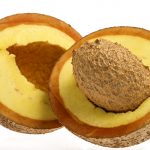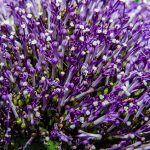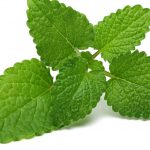
The sycamore fig: A powerful ally in preventing mental disorders caused by stress
Monday, August 20, 2018 by Ralph Flores
http://www.naturalnewsherbs.com/2018-08-20-the-sycamore-fig-a-powerful-ally-in-preventing-mental-disorders-caused-by-stress.html

Researchers have found that the sycamore fig (Ficus sycomorus) could be used to reverse that adverse effects caused by stress. The study, which appeared in BMC Complementary and Alternative Medicine, found that the bark of the sycamore fig contains bioactive compounds that function similarly to antidepressants which can treat conditions brought about by an unpredictable chronic mild stress (UCMS) model in animal studies.
UCMS is a widely accepted model for depression in animals. In the study, the team looked at whether the extract obtained from the bark of the sycamore fig is able to relieve symptoms of depression, anxiety, and memory impairment following UCMS. In the experiment, researchers examined the rats for behaviors related to anxiety, depression, and anhedonia (the inability to feel pleasure). For the latter, this was done using a sucrose test before and after UCMS. In addition, the extracts were subjected to other tests to determine its total antioxidant capacity, as well as its other chemical properties.
Researchers found that rats treated with the sycamore fig extract had reversed the effects of UCMS. In particular, rats felt anhedonia after the test, but this was reversed after treatment with the extract, with rats showing an increase in sucrose consumption. This suggests that using the sycamore fig can influence a patient’s sense of pleasure, which is usually affected by depression.
The rats also performed better in tests designed to evaluate memory and anxiety after treatment, which supported the claim that the sycamore fig contained antidepressive properties. Researchers opined that this biological activity is a result of the potent flavonoids that are present in the extract. These, for instance, reduce oxidative stress in the brain, especially in the areas where learning and memory were involved. In addition, these also contained anti-inflammatory properties that are closely associated with the inhibition of enzymes that cause anxiety and mood disorders.
“These results suggest that the plant extract has an in vivo antioxidant activity and is capable of ameliorating the effect of ROS [reactive oxygen species (a process linked to oxidative stress)] in the brain of rats,” they added.
The researchers concluded that the sycamore fig is able to reverse the effects of UCMS, which gives it its antidepressant-like effect. (Related: Study: Depression can be remedied with natural extracts.)
Other herbs to help with anxiety and depression
Before prescription medication was the golden standard to treat depression and anxiety, people have long been using natural herbal treatments for these conditions. If you’re looking for alternative treatment for these conditions, here are some herbs that you can try.
- St. John’s Wort – The herb is widely known as a treatment for both anxiety and depression. In Germany, it’s a first-line medication for mild to moderate depression, with its effects comparable to prescription antidepressants. Unlike prescription drugs, however, the herb contains fewer side effects.
- Lavender oil – Commonly used as an inhalant to induce calm and help people sleep better, it’s also non-addictive, meaning that it can be used as often as needed.
- Valerian root – This herb is one of the most effective for sleep, and should only be taken before sleep or during an anxiety attack. It’s also not a good idea to mix valerian root with alcohol.
- Kava root – Long used as a ceremonial tea in the Polynesian islands, kava root is able to relax and relieve anxiety with no addictive side-effects. The main difference is that kava, unlike alcohol, can improve cognitive function while treating anxiety.
- Chamomile – This popular tea blend helps deal with both depression and anxiety.
Consult with your healthcare provider before taking these herbs, especially for those on medication.
Find more herbs that relieve stress and prevent brain damage at Herbs.news.
Sources include:
Tagged Under: Tags: Anxiety, brain health, depression, Ficus sycomorus, goodhealth, goodmedicine, goodscience, herbal medicine, Herbs, memory, mental health, mind body science, mood disorders, natural cures, natural medicine, natural remedies, plant cures, plant medicine, prevention, stress, sycamore fig, Unpredictable chronic mild stress





